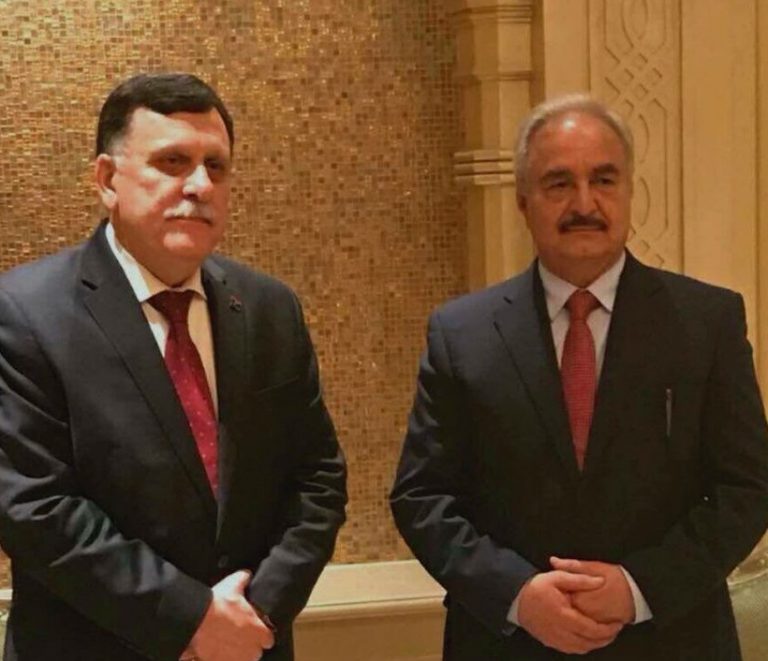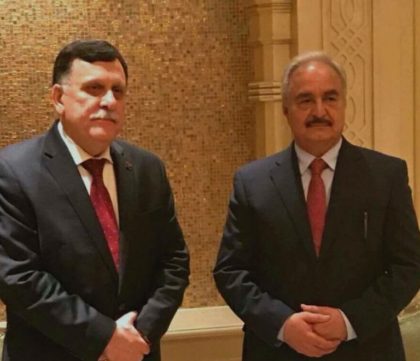
Libya: France takes political agreement initiative
 France has confirmed that the Prime Minister-designate Fayez Serraj of the UN-backed Government of National Accord will be meeting, in Paris on Tuesday, with Field Marshall Khalifa Haftar of the Libyan National Army, loyal to the Tobruk-based House of Representative.
France has confirmed that the Prime Minister-designate Fayez Serraj of the UN-backed Government of National Accord will be meeting, in Paris on Tuesday, with Field Marshall Khalifa Haftar of the Libyan National Army, loyal to the Tobruk-based House of Representative.
An official statement highlighted that the initiative is geared towards facilitating “a political agreement” between the two camps and “the challenge is to build a state capable of meeting the basic needs of Libyans and endowed with a regular unified army under the authority of the civil power.”
Libya has been in turmoil since 2011 with the NATO-backed uprising against Gaddafi’s regime.
Efforts to establish a political government and stability have been unfruitful over the years but Paris intends to “show its support for the efforts to build a political compromise, under the aegis of the United Nations, which unites… all the different Libyan actors.”
Sources hinted that Haftar had arrived in France ahead of Serraj and was expected to meet with President Emmanuel Macron.
Some analysts expressed concern that the meeting would give the renegade military official “some form of legitimacy” while admitting that it could also contribute to the implementation of the UN-brokered 2015 Libyan Political Agreement.
The French initiative is said to have been determined by security concerns over its investments in the Sahel, the rising terrorist attacks it has experienced on its territory and the influx of illegal migrants.
Paris underlined that it is necessary for the control of Libyan territory and its borders, to fight terrorist groups and arms and migrant traffickers, but also to secure return to a stable institutional life.
The Elysee hopes that its efforts will be timely as newly appointed UN envoy for Libya, Ghassan Salame, assumes his duties.
French Foreign Minister Jean-Yves Le Drian has repeatedly said that Libya was “a priority” for Macron and that there was “a security risk because of the trafficking of all kinds, including humans” from Libya.
